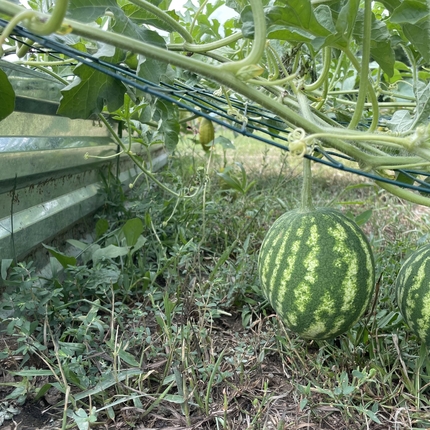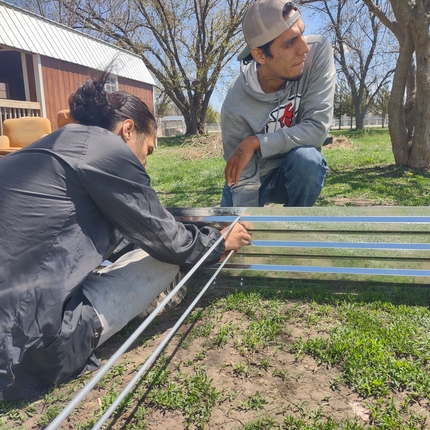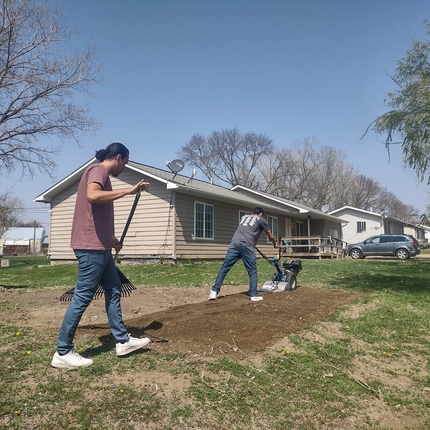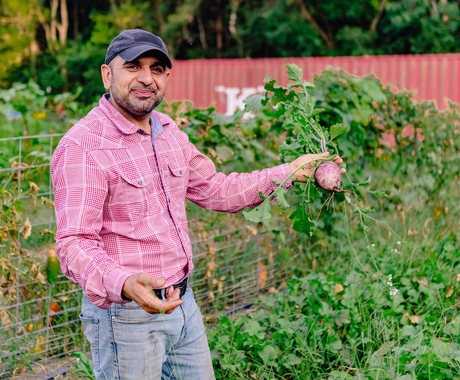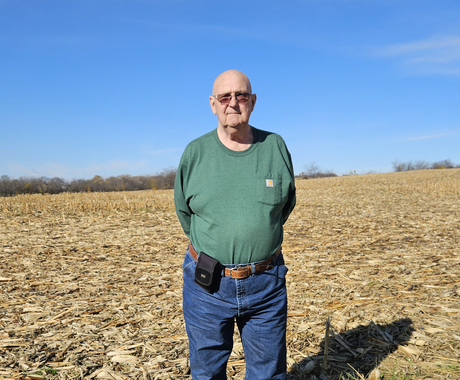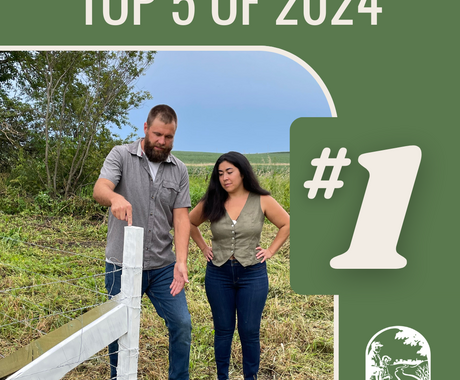With support from the Center for Rural Affairs, two Nebraska communities are on the path to reviving a once proud tradition of growing their own food, and, in turn, improving their local businesses and offering residents a place closer to home to purchase groceries and other necessities.
Food sovereignty—or the ability to control the system and policies that govern food production—is important to the health and well-being of any community. For the Nebraska UMÓⁿHOⁿ (Omaha) and Isanti (Santee) communities, the lack of local food access and production has had a negative impact.
The Center is hoping to turn the tide, however. In 2022, the Center was awarded a Local Food Promotion Program (LFPP) grant. LFPP is part of the Farmers Market and Local Food Promotion Program, a subset of the Local Agriculture Market Program administered by the U.S. Department of Agriculture's Agricultural Marketing Service. LFPP provides training, education, and marketing opportunities to community members looking to increase the production of their own fresh and healthy local food.
In the UMÓⁿHOⁿ (Omaha) and Isanti communities, the Center has begun to organize farmers markets where residents can sell their own produce and partnered with the Nebraska Indian Community College to offer workshops for producers in their greenhouses, as well as education on food safety, preservation, and value-added food production. Additionally, staff are providing business and marketing training to help local food producers increase their production and market their products.
“The LFPP has provided the financial support to make these initiatives happen,” said Kristine Flyinghawk, Native communities manager for the Center. “It’s hard to find good funding that promotes these positive experiences for our community, and LFPP is a beautiful way for us to work toward our goals. I was impressed with how the Agricultural Marketing Service worked with us. They were really amazing.”
Kristine said Center staff have big plans for the program, including hosting more farmers markets and creating an Intertribal Food Council to bring the four Nebraska Tribes together and reunite their communities and their food systems. The council, which will consist of community elders, youths, food producers, and retailers, will work together to address the issues affecting their food sovereignty and find solutions while incorporating their traditional knowledge and history.
“Nebraska Tribes are unique and have different challenges than tribes in the southwest, for example,” Kristine said. “While all Tribes are different, there are many commonalities we share and areas where we can grow, so being able to start moving forward with this project is super exciting.”
Funding provided by programs such as LAMP offers opportunities that would otherwise not be available in these areas. By partnering with groups like the Center, which can provide additional resources, LFPP makes the most of its dollars to ensure these communities are properly served. The collaborative element between organizations, local producers, and residents allows this funding to go to where it is needed most and will have the biggest impact.
“Amazing things can be accomplished if everyone works together,” Kristine said. “It would be great to see our community's youth take on a leadership role for the future of the community.”

